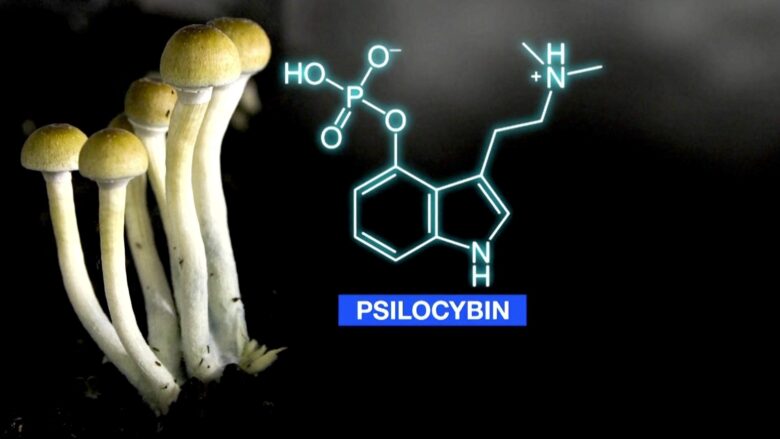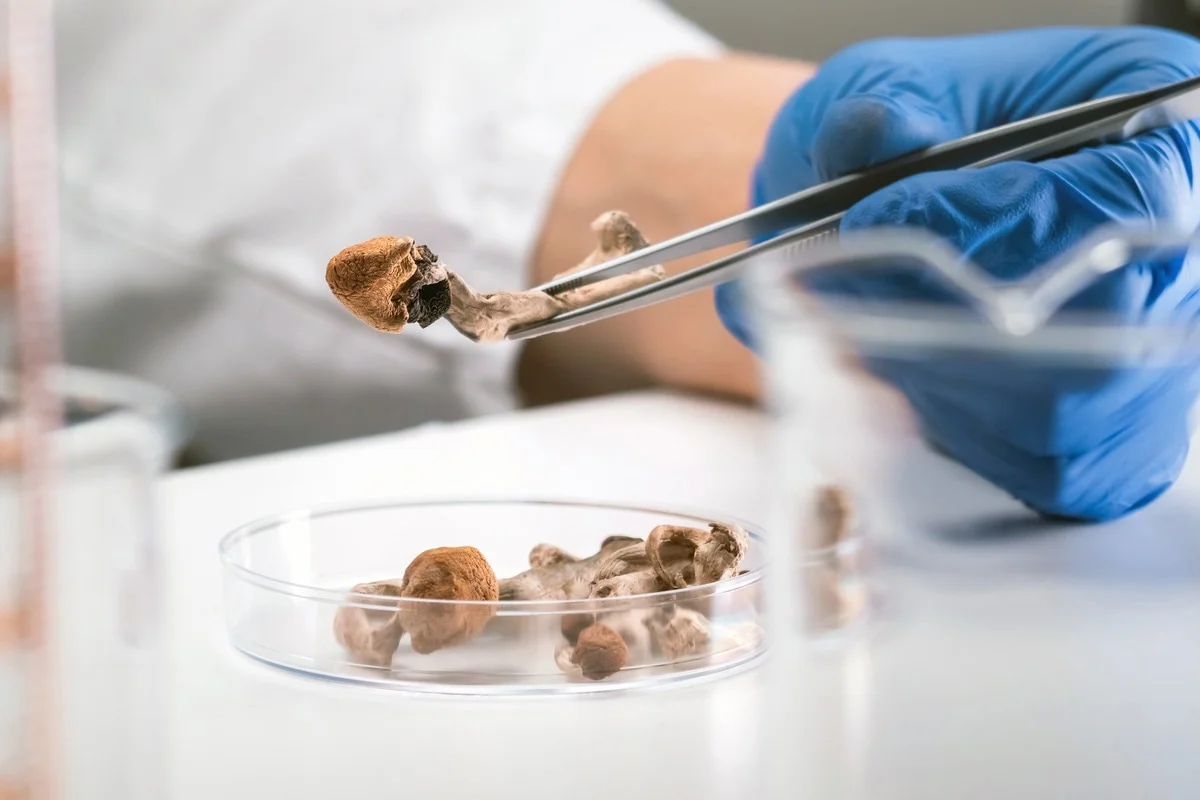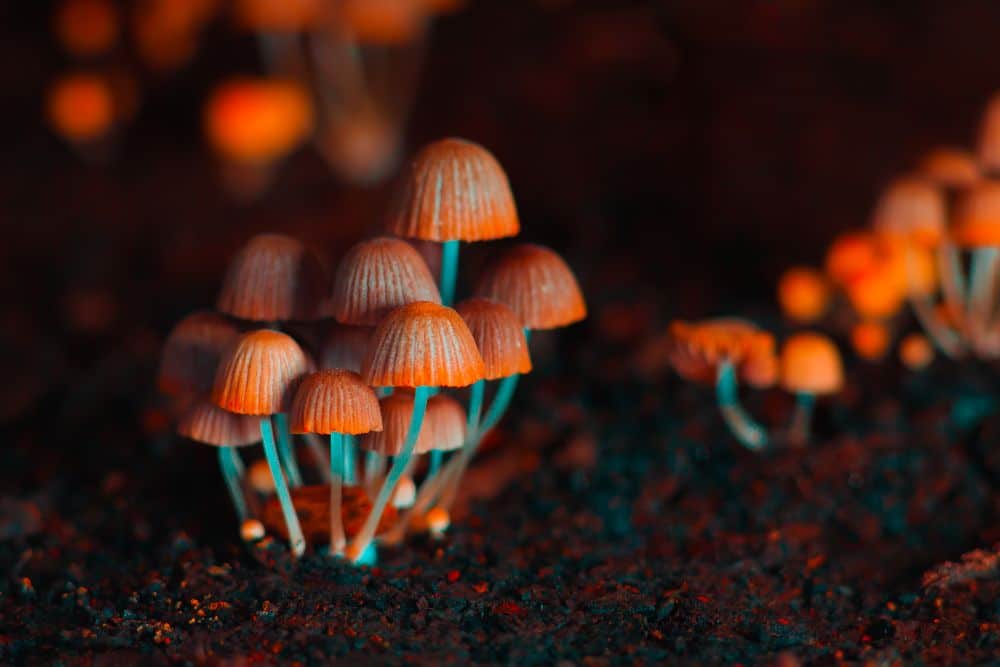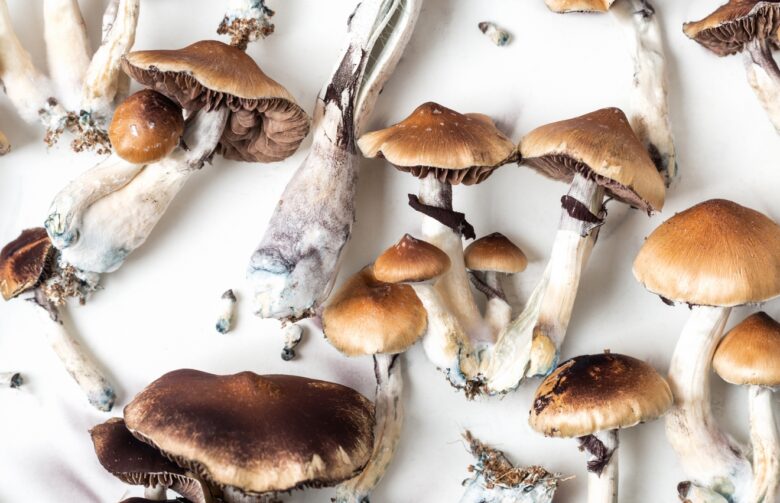Psilocybin is a naturally occurring psychoactive compound that can be found in over 200 species of mushrooms. These mushrooms, often referred to as “magic mushrooms,” have been used for centuries by indigenous cultures for spiritual purposes and healing practices.
In recent years, psilocybin has gained the attention of scientists and researchers due to its potential therapeutic benefits. After decades of research restrictions, scientists are now able to study this compound and its effects on the brain in more detail. This is why you can easily find psilocybin capsules, psilocybin pills, and other psilocybin-based products on the market.

Source: london.ctvnews.ca
Contents
Brief History of Psilocybin Research
Research on psilocybin began in the 1950s when Swiss chemist Albert Hofmann isolated and synthesized the compound from mushroom samples brought back from Mexico. His colleague, R. Gordon Wasson, experienced the psychoactive effects of psilocybin during a mushroom ceremony with a Mazatec shaman in Mexico. This experience sparked widespread interest and studies into the potential therapeutic benefits of psilocybin.
In the 1960s, researchers conducted numerous experiments on humans using psilocybin to treat various mental health conditions, including depression, anxiety, and addiction. However, due to the recreational use of psychedelics and government crackdowns on drug abuse, research into psilocybin was halted by the early 1970s.
Recent Developments in Psilocybin Research
In recent years, there has been a resurgence of interest in studying psilocybin’s effects on the brain and its potential therapeutic benefits. In 2018, the FDA granted “Breakthrough Therapy” status to psilocybin for the treatment of depression. This designation expedites the drug development process and allows for more research to be conducted.
Various studies have shown promising results in using psilocybin-assisted therapy to treat conditions such as depression, anxiety, PTSD, and addiction. The compound is believed to work by creating new neural connections in the brain and promoting introspection, leading to increased self-awareness.
Psilocybin-Assisted Therapy: How It Works
Psilocybin-assisted therapy involves taking psilocybin in a controlled and supervised setting, usually accompanied by a therapist. This therapeutic approach is based on the concept of set and setting, which refers to the mindset and environment in which the psychedelic experience takes place.
During a session, individuals are encouraged to explore their thoughts, emotions, and past experiences with the support of a therapist. This can help individuals gain insights into their behavior patterns and address underlying issues that may be contributing to their mental health condition.

Source: news-medical.net
Potential Benefits of Psilocybin-Assisted Therapy
Clinical trials have shown promising results in using psilocybin-assisted therapy to treat various mental health conditions. Some of the potential benefits include:
Reduced Symptoms of Depression and Anxiety
Psilocybin, the active compound in magic mushrooms, has been shown to relieve symptoms of depression and anxiety. In a controlled environment, psilocybin stimulates a strong connection with parts of your brain that normally don’t communicate with each other. This can result in a state of hyper-connectivity, which is believed to help the brain “reset” itself.
During the experience, individuals often report feelings of unity, interconnectedness, and dissolution of self-boundaries. These profound experiences can lead to significant shifts in perspective and provide new insights into old patterns of behavior and thought.
In the aftermath, users often report a reduction in symptoms of depression and anxiety. This is believed to be due to the lasting changes in brain connectivity, which allows the brain to maintain these therapeutic effects long after the effects of the drug have worn off.
Improved Mood and Well-Being
Psilocybin’s effect on mood and overall well-being stems from its ability to stimulate a deep sense of connection, unity, and openness. This altered perspective can imbue a sense of positivity and acceptance, helping to uplift one’s mood.
The compound is known for inducing experiences that users often describe as spiritually meaningful. Such experiences can lead to a revised outlook on life, fostering a sense of peace, satisfaction, and happiness.
Importantly, these mood-enhancing effects aren’t fleeting. Changes in brain connectivity triggered by psilocybin can persist long after the drug’s active effects have subsided. This ongoing impact can result in a stable improvement in mood and an overall enhancement in the individual’s sense of well-being. In essence, psilocybin-assisted therapy can offer a lifeline for those grappling with emotional distress, guiding them toward a more positive and balanced state of mind.

Source: healthyliferecovery.com
Enhanced Creativity and Openness
Psilocybin is not just a mood enhancer, it can also stimulate creativity and openness. Here’s how. This compound, often linked with psychedelic experiences, has the potential to unlock novel ways of thinking. It essentially decouples the brain’s habitual networks, allowing neurons to form fresh connections.
This reconfigured brain state can lead to divergent thinking – a key component of creativity. Users often report a surge in original ideas and innovative solutions post-ingestion. This is attributed to the psilocybin-induced dissolution of entrenched thought patterns and rigid beliefs.
Beyond creativity, psilocybin enhances openness as well. This refers to an increased receptivity to new experiences, ideas, and perspectives. The compound’s capacity to dissolve boundaries breeds a sense of unity and interconnectedness, fostering empathy and understanding. Such shifts in perspective can engender personal growth, leading to lasting changes in attitudes and behavior.
Potential for Treating Mental Health Conditions
The therapeutic use of psilocybin extends beyond mood enhancement and creativity stimulation. Research has shown promising results in using this compound to treat a range of mental health conditions. Studies indicate that psilocybin-assisted therapy is particularly effective in managing treatment-resistant depression, anxiety, and addiction.
How can a single compound address such diverse ailments? Psilocybin’s effects are attributed to its capacity to influence the brain’s serotonin receptors. Serotonin is commonly referred to as the “happy chemical,” playing a vital role in regulating mood, cognition, and emotions. Psilocybin binds to these receptors, leading to increased levels of serotonin, resulting in a sense of well-being.
More importantly, psilocybin’s effects on the brain open up possibilities for new approaches to treating mental health disorders. Its ability to disrupt rigid thought patterns and promote openness allows for breakthroughs in traditional therapy methods that may have previously been ineffective.

Source: healthcentral.com
Final Thoughts
Though the potential benefits of psilocybin are significant, it’s crucial to note that the use of this compound should not be taken lightly. As with any substance, it carries risks and side effects. Therefore, it is strongly recommended to use psilocybin under the guidance of a healthcare professional or within a controlled clinical context. This way, its usage is safe, monitored, and, most importantly, tailored to the individual’s needs and mental health condition. Always remember that the exploration of the potential healing properties of psilocybin is a promising avenue, but it should be pursued responsibly and ethically.
